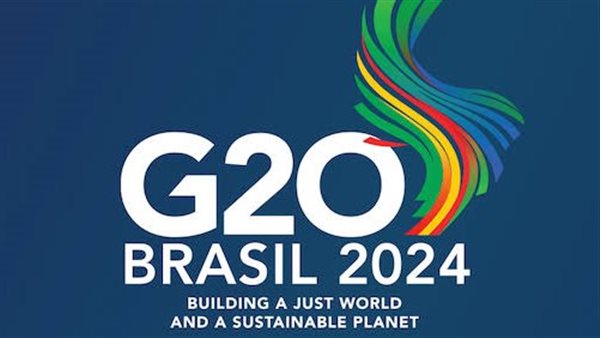
Leaders of the Group of 20 major economies are scheduled to meet on Monday in Brazil for their annual summit, preparing for a shift in the global order with the return of US President-elect Donald Trump to power.
Discussions on trade, climate change and international security will collide with sharp changes in US policy that Trump pledged upon taking office in January, from tariffs to promising a negotiated solution to the war in Ukraine.
While US President Joe Biden arrives as a lame duck with only two months remaining in the White House, Chinese President Xi Jinping will be a pivotal player at a G20 summit riven by geopolitical tensions amid wars in Gaza and Ukraine.
“It’s not just geopolitics that causes us concern, but also China’s role, its economic and financial role, is very prominent on many issues,” said a German official, who requested anonymity to freely discuss diplomatic tensions.
While China has been in Russia’s camp over Ukraine, Germany believes Beijing will find it difficult to maintain that position as the conflict turns “global” with Russia’s deployment of troops from North Korea putting it “on China’s doorstep,” another official said.
A source said diplomats drafting a joint statement for summit leaders struggled to maintain a fragile agreement on how to deal with the escalating war in Ukraine, even vaguely calling for peace without criticizing any of the participants.
Russia’s massive air strike on Ukraine on Sunday shook what remained of the consensus reached, as European diplomats seek to reconsider previously agreed-upon language on global conflicts.
The United States responded to the Russian attack by lifting previous restrictions on Ukraine’s use of weapons manufactured in the United States to strike deep into Russia.
Brazilian officials realized that their G20 agenda, which focuses on sustainable development, taxing the rich and fighting poverty and hunger, may soon lose momentum when Trump begins dictating new global priorities from the White House.
Brazilian officials said that Brazil’s efforts to reform global governance, including multilateral financial institutions, may also face obstacles with Trump.
A source in the Brazilian Finance Ministry told Reuters on condition of anonymity: “Trump does not value multilateralism and I do not see many possibilities for the Trump administration to engage in these issues or show any interest in them.”
Xi is expected to promote China’s Belt and Road Initiative while exercising its economic rise. Brazil has so far declined to join the Global Infrastructure Initiative, but hopes are high for other industrial partnerships when Xi concludes his stay in the country with a state visit to Brasilia on Wednesday.
Li Xing, a professor at the Chinese Foreign Ministry’s Guangdong Institute for International Strategy, said Brazil’s decision not to join was a “big blow to relations.”
“China was very disappointed,” he added.
G20 trade talks will be fueled by fears of an escalation in the US-China trade war, with Trump planning to impose tariffs on imports from China and other countries.
Trump’s enthusiasm for cutting taxes would add further headwinds to Brazil’s efforts to discuss taxing the wealthy, an issue dear to Brazilian President Luiz Inacio Lula da Silva who has put it on the G20 agenda.
Trump’s newest ally in Latin America, liberal Argentine President Javier Milley, has already drawn a red line on the issue, and diplomats said Argentine negotiators refused to agree to mention the issue in the summit’s joint statement.



